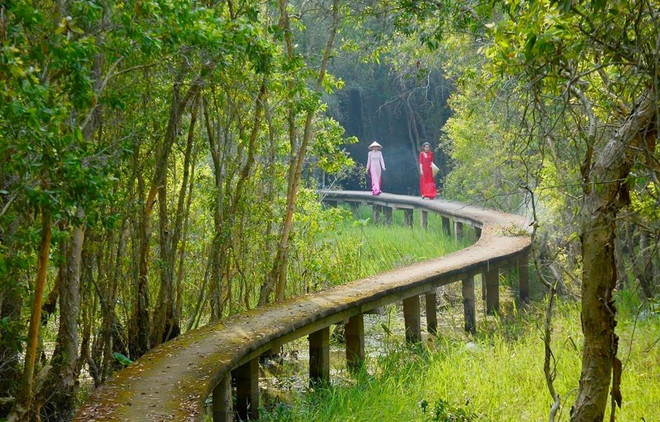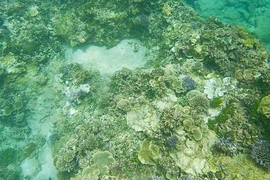In Vietnam, multiple efforts have been made to assist in the recovery ofdegraded and destroyed ecosystems as well as conserve those that are stillintact, particularly in the Mekong Delta, one of the world’s deltas mostvulnerable to climate change.
The Mekong Delta is in the southern part of Vietnam and includes thecentrally-run city of Can Tho and 12 provinces, accounting for 12 percent ofthe country’s area and nearly 20 percent of its population.
 In Tan Lap Floating Village, Tan Lap Commune, Moc Hoa district, the Mekong Delta province of Long An. (Photo: VNA)
In Tan Lap Floating Village, Tan Lap Commune, Moc Hoa district, the Mekong Delta province of Long An. (Photo: VNA)Its ecosystems, however, have reduced in size and become degraded due tothe adverse effect of climate change and the overexploitation of naturalresources. More attention has therefore been paid to strengthening theconservation of biodiversity and reducing ecosystem degradation to improvelocal livelihoods and minimise the risk of natural disasters.
In Kien Giang, the provincial People’s Committee has approved a projectexamining and surveying the current status of biodiversity in the Phu QuocMarine Protected Area. Action is being taken to restore ecosystems that have becomedegraded or destroyed and to strengthen the monitoring of the environment andnatural resources to promptly identify solutions for adaptive management.
The province has ramped up the planting of coastal protection forestsand implemented projects on planting trees for salinity control and sea dykeprotection on a total area of 85 hectares in response to climate change, saidVice Chairman of the provincial People’s Committee Nguyen Thanh Nhan. Since theend of 2017, over 540 hectares of mangrove forests have been grown in theprovince, he noted.
On the island city of Phu Quoc, the first Saturday of each month hasbeen observed as a day for the environment since mid-2019, when all people andorganisations are called on to act for a greener, cleaner, and safer “PearlIsland”. Together with Patong in Thailand and Donsol in the Philippines, PhuQuoc Island has made a commitment to eliminating plastic pollution bydeveloping an action plan and trialling innovative solutions as part of theWorld Wildlife Fund (WWF)’s Plastic Smart Cities initiative.
Many endangered and native animals, for instance Burmese pythons and pangolins,have been released into Ca Mau’s U Minh Ha National Park - a Ramsar site inVietnam - by authorities, to protect its biodiversity, according to the park’sDirector Huynh Minh Nguyen.
Conserving biodiversity and endangered natural resources not only helpsustain local livelihoods but also remain key in boosting tourism in the MekongDelta./.






























